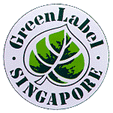



Recycling:
How to Shop for Future Generations 
Everybody shops. But not everybody realizes how environmentally important it is to shop consciously. To PRECYCLE is to make buying choices that support responsible products and packaging, make recycling easier and reduce the amount of garbage you throw away.The following recycling tips focus on supermarket shopping because that's the kind we do most frequently. But the ideas apply to other forms of shopping, too.
Bring Your Own Reusable Shopping Bags
This is the best way to avoid the paper vs. plastic dilemma. Durable canvas or string bags are light and convenient to carry and can be used thousands of times. Reusable bags can easily become a habit and save an astonishing amount of paper and plastic over time.
Buy In Bulk
This not only uses less total packaging, it also saves you money! Buy large single containers instead of the same volume in many smaller containers (e.g., 2-liter bottles vs. six packs). For any item with a long or unlimited shelf life (e.g., laundry detergent) or non- perishable foods you use regularly (such as cereals and grains) buy the biggest container you can. Put manageable amounts in reusable, smaller containers for everyday use. For somewhat perishable foods (e.g. peanut butter) buy the biggest container feasible for your rate of use.
Buy Recycled Paper Packaging
Pass up polystyrene foam ("Styrofoam") egg cartons and choose cardboard ones, which are made from recycled newsprint. For paper boxes (such as cereal boxes) the rule of thumb is: If the unprinted side is gray and not white, it's made from recycled.
Avoid Throwaway Products
Avoid single- or limited-use items such as plastic razors, throwaway cleansing pads and cigarette lighters, non-refillable pens and foil baking pans. Reduce or eliminate your use of disposable plastic diapers.
Avoid Excess Packaging
Compare the size of the package to the size of the product. If the package is designed to take up as much shelf space as possible, choose a competing product. Do without products that are sold inside more than one layer ("bric pac" juice boxes for children-with layers of cardboard, plastic and aluminum and a plastic straw attached -are a particularly wasteful example). Avoid miniaturized "single-helping" packages. Buy fruit and vegetables loose. Be wary of convenience gimmickry (e.g., pre-measured ground coffee in individually sealed filter packs, "soupstarter" kits, melons and grapefruits pre-halved and vacuum- packed). Choose products that are not in plastic trays and do not have attached "promotional" materials.
Think Recycling
Choose the container that can - in your community - be most easily collected, sorted and re-manufactured into new products.Avoid products that are difficult to recycle (e.g., many "squeezable" plastics, made of numerous layers of different plastics).
Watch The Words

Advertisers have worked overtime to translate consumers' environmental sympathies into increased sales for their product- even if their product is not particularly good for the environment. Beware of the word "recyclable," which is not the same as "recycled," the word it so closely resembles. Many materials are technically recyclable, but what matters is what you can recycle in existing local programs. A "recycled" product or container is actually made from materials that have been used before.
Particularly misleading are claims that certain plastic products are "biodegradable". The truth is that "degradable" plastics don't degrade in modern landfills and, at best, merely break up into smaller pieces that can release toxic substances. They interfere with plastics recycling and end up creating more problems than they solve. (EDF and other environmental groups have called for a boycott of all so-called "degradable" plastics. Don't buy them!)
Let Them Know
Tell grocers, store owners, restaurant managers and others that you are making your buying decisions based on the environmental impact of products. Let the manufacturers know, too (many companies carry addresses or phone numbers on their packaging).
By careful precycling each of us makes the vital connection between today's consumerism and tomorrow's environment. Small changes in everyday behavior can have positive consequences for generations to come.

Green SuperMart Below are some environmentally improved products that have met the criteria of environment-friendliness set by the Green Labelling Scheme.
Remember! Look out for the Green Label logo when you buy the products.

Household Store
Detergents
Company Name Brand UIC Chemicals Pte Ltd UIC Big Value Detergent
UIC Big Value Concentrated Liquid
Compet Liquid Laundry Detergent
UIC Big Value Dishwashing Liquid
Nature Dishwashing Liquid
Spin Automatic Detergent
Plus White Super Concentrated Enzymatic Detergent
UIC Big Value Floor Cleaner
Compet Real Concentrated Powdered DetergentUniversal Westech (s) Pte Ltd Magic Regular Laundry Detergent JWH Packaging and Trading TRI-PAC Liquid Laundry Cleaner
TRI-PAC Dishwashing Detergent
TRI-PAC Floor CleanerUnza Company Pte Ltd Way Way Concentrated Laundry Wash
Electrical Store Washing Machines
Name of Company Brand Model AEG Pte Ltd AEG Lavamat538 Casa (S) Pte Ltd Goldstar WF-906, WF-1045, WF-907M
WF-1075A, WF-1095A, WF-1505ASanyo Industries (S) Pte Ltd Sanyo ASW-36LT, ASW-40MT
SAW-45MTSharp-Roxy Sales (Singapore) Pte Ltd Sharp ES-B756A, ES-D866A
ES-M45A, ES-M55ATEM Electromenger Asia Pte Ltd Thomson TX178N, TX238N, TX268N Whirlpool Singapore Pte Ltd Whirlpool SL768, SL771, SL770